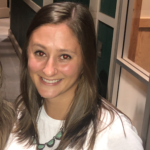Session Description
Many graduate students face the unprecedented challenge of holding full-time jobs while attending school to further their careers in obtaining a master’s degree. A 2020 report from the Council of Graduate Schools in Washington D.C. reported that 57% (758,000) of master’s degree students do not graduate annually, creating a large gap. A common occurrence for graduate students is that they finish their coursework, but not their research work, a requirement to obtain their degree. Thesis writing is a learned skill, and although graduate students are subject matter experts in their professional fields, many do not know how to write a thesis paper.
Using the ADDIE approach to student-centered learning, the web-based instructional design project focused on graduate students’ interest in (a) joining a Thesis Writing Workshop (https://thesiswritingexpress.com) and (b) writing their thesis in an online Gather Town metaverse space. Performance objectives in the affective domain were assessed using Keller’s and Gagné’s design strategies. Usability and learning assessments with graduate students and one subject matter expert (n = 21) from nine states and two countries evaluated the project’s instructional design. Results from the usability assessment using a Failure Modes Effects Analysis revealed changes needed in content, navigation, visual design, and branding. Once revisions were made, an asynchronous learning assessment using a retrospective survey was conducted. Students responded favorably to the design, with positive responses for relevance, integration, and acceptance. Recommendations for improvement include designing additional user tasks on workshop paper types, paper sections, and a personalized video for learners to explore the web-based content for thesis writing.
Presenter(s)
 Tanya Spencer
Tanya Spencer
University of Hawaiʻi at Mānoa
Tanya Spencer is a thesis writing mentor coach. In the last three years, she has helped over 70 students from 26 states and three countries complete their thesis papers to meet graduate program requirements. She was born and raised in Southern California and has a B.A. in Family & Consumer Sciences (Interior Design) with a minor in Marketing and an M.P.A. in Public Policy & Administration with honors from California State University, Long Beach. Living in Hawaiʻi for five years, Tanya is currently working on her M.Ed. in Learning Design and Technology and a Certificate in Online Learning and Teaching (COLT) program at the University of Hawaiʻi at Mānoa and is on a two-year timeframe to graduate in May 2022. Her hope for this project is to learn together, grow together, and help graduate students write their thesis papers and cross the finish line to graduate. After completing the master’s program, Tanya welcomes opportunities in the Learning and Development space to help individuals and organizations strategically meet their performance goals. She looks forward to meeting you all. Connect through LinkedIn: https://www.linkedin.com/in/tanya-spencer-592735234/

 Caroline Langlais
Caroline Langlais Kelly Asato
Kelly Asato Cherryle Heu
Cherryle Heu Emily Sesno
Emily Sesno Ger Thao
Ger Thao Kelly McDermott
Kelly McDermott Michael-Brian Ogawa
Michael-Brian Ogawa Anita Knox
Anita Knox Danilo Madayag Baylen
Danilo Madayag Baylen